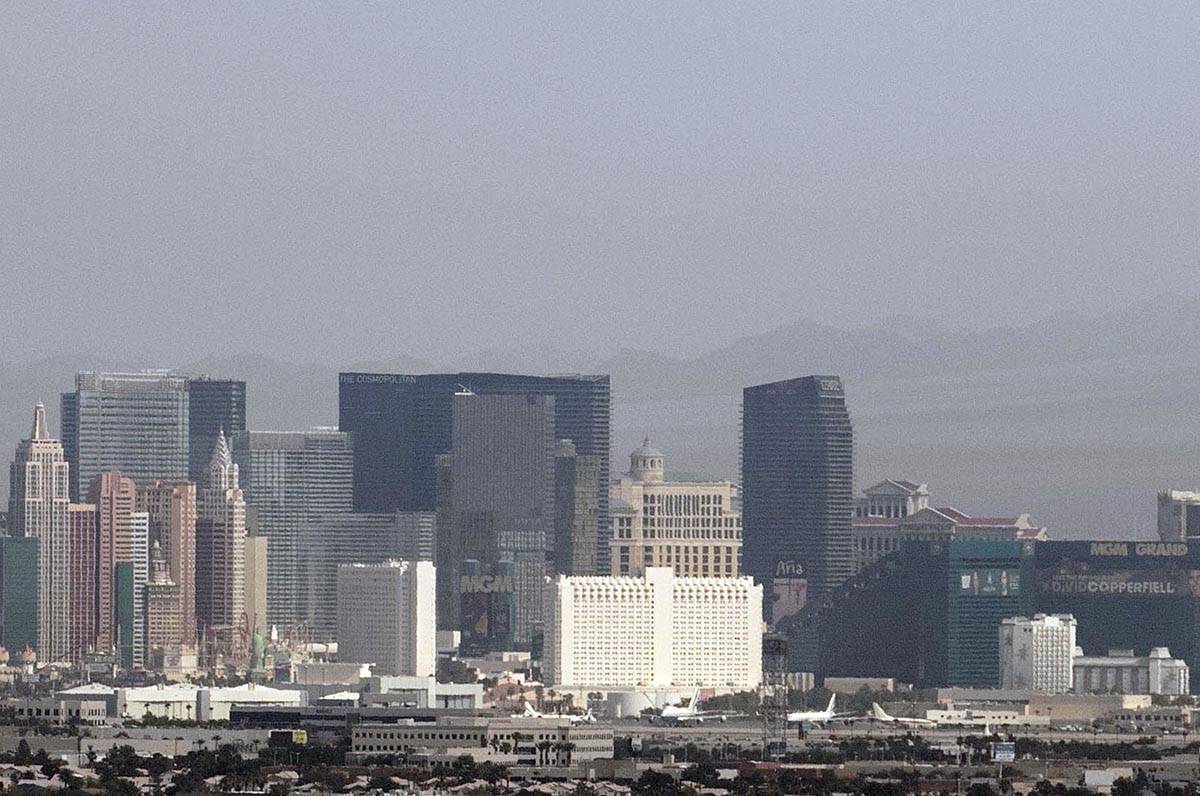Hotel-casino investors limp to end of 2nd-quarter earnings season
Mercifully, the second-quarter earnings season has come to an end for publicly traded companies that operate casinos in Southern Nevada.
And investors are breathing a sigh of relief.
The financial carnage was brutal, and the coronavirus pandemic and the casino shutdowns left in its wake are to blame.
The publicly held casino and gaming equipment companies reported revenue of $2.532 billion — which sounds like a big number until one realizes that MGM Resorts International, by itself, generated $3.223 billion in the second quarter of 2019.
On average, revenue was down 71.2 percent for 14 casino-centric resort and equipment companies. The net loss among those 14 companies was $2.764 billion for the quarter.
Not all of the revenue dips and net losses were attributable to Las Vegas. Several companies generate revenue — and record losses — as a result of operations in other locations.
While Nevada casinos were shut down 78 days — about two-thirds of the second quarter — properties in other states, in other nations and at American tribal casinos were shuttered for different intervals through the quarter that began April 1 and ended June 30.
Regional operators Caesars Entertainment Corp., Boyd Gaming Corp. and Penn National Gaming, for example, have operations in other states across the country in addition to Southern Nevada.
Megaresort operators Wynn Resorts Ltd., Las Vegas Sands Corp. and MGM have operations overseas (all three have properties in Macao) and on the East Coast.
But to the stock investor, it doesn’t matter whether they’re American dollars or Macanese patacas; it all adds up to no dividends.
In Nevada, operators were affected by weakened airlift into McCarran International Airport by major air carriers serving the market, reduced capacity in casinos as ordered by Gov. Steve Sisolak, and the inability to host trade shows and conventions that fill rooms in the middle of the week.
International flights were nonexistent, keeping out customers usually reliable for revenue with their long stays and robust spending habits.
Resort companies did their best to mitigate the damage by reducing expenses — but that often meant laying off or furloughing loyal, reliable employees, setting off even more financial disaster on a personal level.
Las Vegas’ six largest casino companies suffered the worst of it, with Las Vegas Sands posting a net loss of $985 million, MGM $857.3 million, Red Rock Resorts $118.4 million, Boyd Gaming $108.5 million, Caesars Entertainment $100 million and Wynn Resorts $3.5 million.
Revenue decline percentages included Sands at 97.1 percent, Wynn at 94.8 percent, MGM at 91 percent, Caesars at 80.1 percent, Red Rock at 77.5 percent and Boyd at 75.2 percent.
Slot machine and gaming equipment manufacturers, which rely on casinos for percentages of slot revenue or upgrading equipment, didn’t fare as badly as the casino companies but still had rough times in the second quarter.
The biggest players, London-based IGT and Scientific Games Corp., posted losses of $94.1 million and $198 million, respectively, and IGT revenue was off 48.3 percent while Scientific was down 36.2 percent.
Is there a turnaround on the horizon for the third quarter?
Brendan Bussmann, who has a local perspective as the Las Vegas-based director of government affairs for Global Market Advisors LLC, thinks brighter days are ahead for investors.
“While numbers were down overall because of the Great Shutdown, there continues to be positive signs that the industry is re-emerging with regional properties taking the lead but seeing the resilience of Las Vegas as a destination,” Bussman said Friday. “It will still be some time before the business-convention customer, (airline) lift, and the international traveler return to Las Vegas that will allow the market to rebound both in terms of visitation and average daily room rates.”
Bussmann sees opportunities for big losers Sands and MGM as border and visitation restrictions ease on China’s boundaries with Macao.
“Gaming companies with exposure in Macao and Singapore will start to see a return as both of these markets reopen to visitors that saw depleted revenues in Q2,” he said. “Assuming the shutdown is not rolled back because of SARS-CoV-2, these companies’ earnings should begin to rebound in Q3 with restrictions being lifted and customers returning because of pent-up demand.”
Investors will learn more about that in late October and early November when third-quarter earnings will begin to be posted.
The Review-Journal is owned by the family of Las Vegas Sands Corp. Chairman and CEO Sheldon Adelson.
Contact Richard N. Velotta at rvelotta@reviewjournal.com or 702-477-3893. Follow @RickVelotta on Twitter.


















